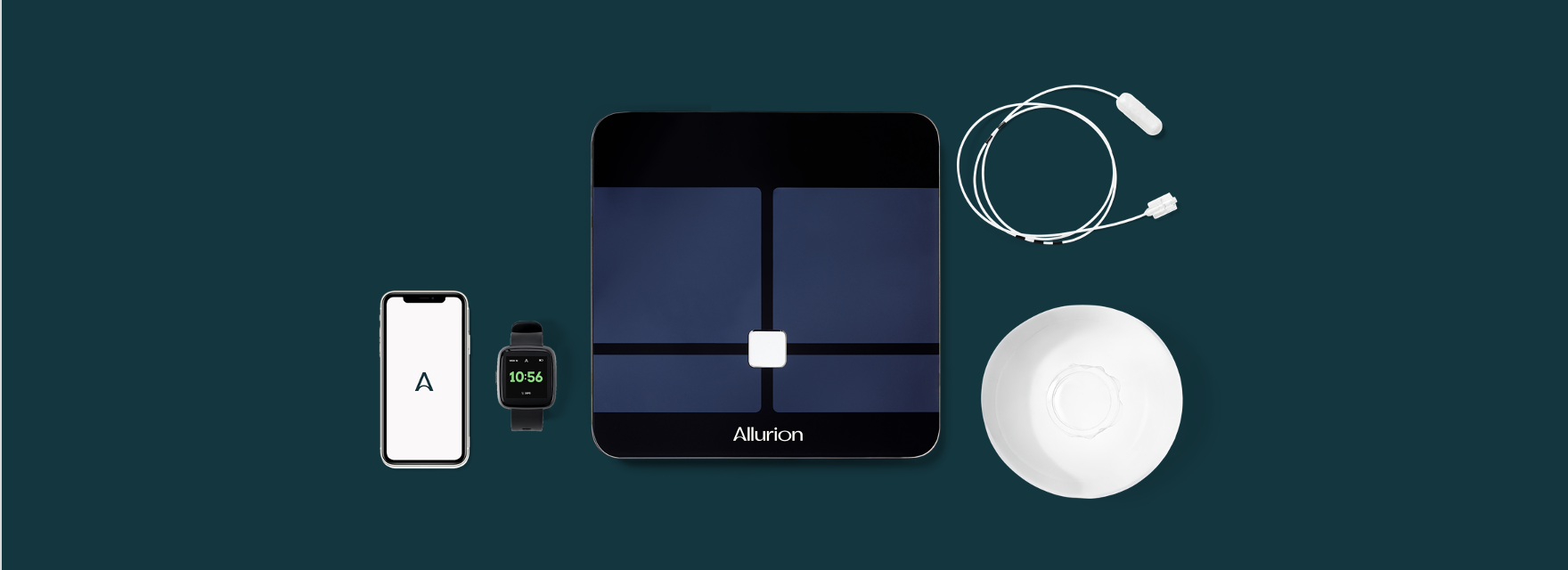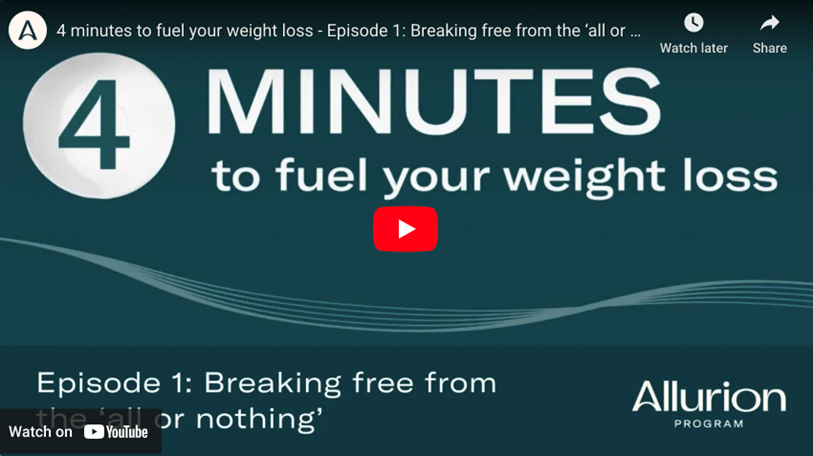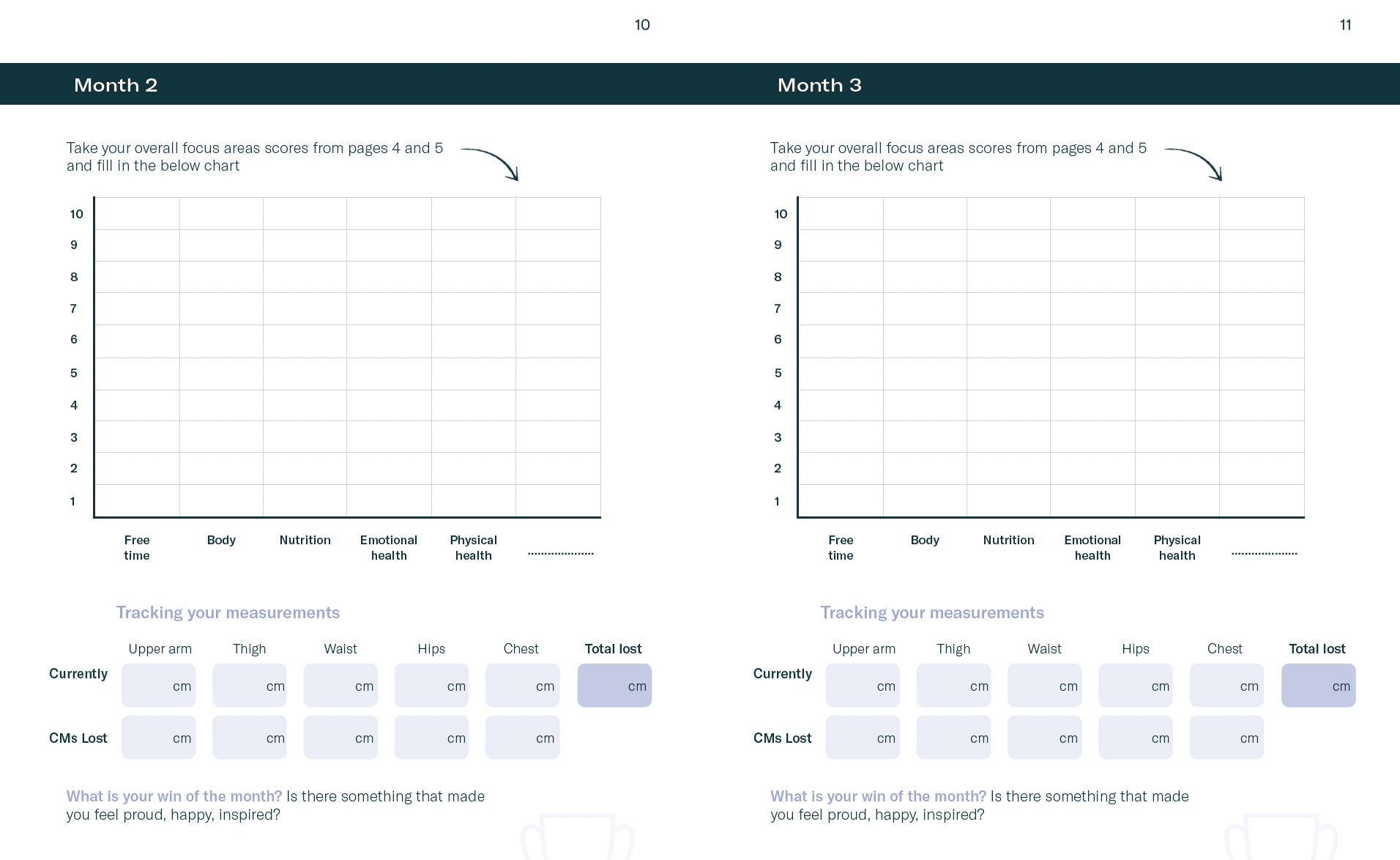Your Guide to Weight Loss Plateaus – How to Manage and Break Through Them

We know weight loss is important to you , but we also know it’s never just about the number on the scale – it’s about lots of other things, too: confidence, freedom, happiness, better sleep, etc.
All these things interconnect and how they change – and how your feelings change – can have an impact on the number you see on the scale every day.
It’s normal for your weight loss to plateau or for you to even occasionally put on weight – fluctuations are a normal part of losing weight. Some days or weeks might be more challenging than others – that’s normal too.
A weight-loss journey is rarely linear – it’s like following a map on a long car journey. Sometimes it will take you over hills or down into winding valleys before you get back to a long, straight stretch and feel like you’re finally making inroads towards your destination.
Losing weight is the same – it will change over time, and be affected by all sorts of factors, some of them out of your control.
Even so, weight fluctuations can eat away at your confidence and motivation. The trick is to identify them as they happen and to have a plan you can put in place to limit their impact.
With the Allurion Programme, every patient is equipped with the tools, knowledge and support they need to overcome challenges along their weight loss journey. We share some great tips in this article, including strategies to help you get back on track, and tools that will come in handy.
What is a weight-loss plateau – and what causes it?
There’s no strict scientific definition for a weight-loss plateau. It usually refers to a stage of a weight-loss journey when a person loses very little or no weight at all for a few weeks in a row.
Plateaus usually occur when you reach an energy balance – when you’re using as much as you’re taking on, resulting in neither a gain nor a loss. However, gaining a little weight during this time is also possible.
Plateaus can be caused by all sorts of different psychological or social factors that can lead to slips in your healthier behaviours (that can then lead to weight gains). 1
Perhaps you’ve had a few days – or more – when you’ve been unable to exercise as much as usual; maybe you’ve taken a new job or you’ve had extra family commitments – a sick relative, moving house, renovations. Even changes to your shopping habits or sleep patterns can sometimes upset your “normal” routine and lead to changes in your weight loss rate or achievements.2
Stress or worry during times like these can sometimes result in “comfort eating” that can tip your energy balance. In fact, negative emotions are a common cause of lapses if you’re trying to follow a diet or exercise plan.3
Everyone experiences challenges and changes like these. The trick is to put a plan in place to identify them as they happen so that you can minimise their impact on your overall weight-loss journey.
The Allurion Programme’s digital tools are designed to provide continuous monitoring, support and motivation all throughout this journey. The Allurion Connected Scale, Allurion Health Tracker and Allurion App sync seamlessly together to give you an overview of your weight, your physical activity, your sleep, and more. Additionally, your medical team can access your weight data and offer proactive support and guidance whenever you encounter a weight loss plateau.

Normalizing Weight-Loss Plateaus and Challenges: Setting Realistic Expectations
Firstly, it’s always helpful to keep your end goal front and centre. When you join the Allurion Programme, our medical team works with you to define your goals
This can help you to stay focused and to keep each smaller challenge in perspective.
- Why did you start this weight-loss journey?
- What do you hope to achieve?
- How far have you already come?
- What goals have you already ticked off?

Thinking about all the things you have gained – and will gain – from your journey and tracking these victories along the way can help you to stay motivated. Reflect on your journey so far, celebrate your successes and visualise all the benefits that could result from staying focused on your goals. Look at what you can control, rather than what you can’t.
Adopting this kind of mindset can help you to overcome challenges as they arise – and to get back on track when you slip. Nearly everyone who tries to lose weight experiences slips and challenges from time to time.
On the plus side, slips can be useful learning experiences. The best way to deal with them is to acknowledge that they will likely happen from time to time and to be prepared to tackle them.
By starting your Allurion Programme journey, you’re already one step ahead. The Allurion Programme is proven to lead to, on average, 10-15% total body weight loss after 4 months3, but individual patient progress might look different, with your own peaks and troughs.
Most people find that their rate of weight loss at the start of the program is rapid – around 7% of total body weight can be lost after approximately 4 weeks or around 50% of the average amount of weight lost over the course of the program.
Weight loss rates change over time and tend to slow down after these first few weeks.5 This period when weight loss slows may feel like a plateau, but it’s really just a normal – and expected – part of this kind of weight-loss journey. At week 4, you still have another 12 weeks of your balloon placement to make changes to your lifestyle that can ensure that you not only keep losing weight, but that you maintain it over the long term too. It’s time you can use to continue to make steady weight-loss progress while also making lifestyle changes for sustainable results.
How to Take Control and Get Back on Track

If your weight loss has stalled or if you’ve put weight back on after a slip , it’s OK – your whole plan won’t fall apart.
Occasional slips like a night of uncontrolled eating or a few days of missed exercise are unlikely, on their own, to cause you to revert to old habits and regain weight over the longer term. However, when people eat something they know is not part of their plan or when they stop being active as much as they had hoped, they often have self-defeating thoughts.
It’s important to take back control to prevent these kinds of slips – and these thoughts – spiralling out of control. That’s when a bump in the road can start to feel like a mountain to climb – and that risks undoing all your hard work. Taking control of a slip and getting back on track right away is key to avoid it progressing into a relapse; more of a full return to your prior behaviours and leading to larger weight gains.
Here are some tips to help you get back on track toward your goals:
- Talk back to negative thoughts with helpful ones. Negative thoughts after a slip can be your worst enemy. They can lead to you feeling discouraged, guilty and angry, and undermine your ability to handle the slip. Resist negative thoughts! You are not a failure if you lapse! Talk back to the negative thoughts with helpful ones. "I am not a failure because I slipped. I will get back on my feet again."
Listen and subscribe to our brand-new series of psychology-inspired podcasts to help you shift your thinking styles and find weight loss success.

- Next, ask yourself questions. Learn from the slip. Was it a special occasion, a one-off? Is it likely to happen again? Did you overeat because of social pressure? Did you skip your daily walk because you were too busy? Review the situation and put a plan in place to help you deal with it more effectively next time.
- Regain control of your eating or activity levels as soon as you can. Don’t put off until tomorrow what you can do today. Getting straight back on track is important to prevent slips from becoming relapses.
- Talk to someone supportive. Message or call your nutritionist or someone else on the clinic team. Losing weight is a team effort – your team is there for you, particularly during your challenging times. Harness the unique support offered by your clinic team. Call a friend or family member. Talk through your new strategy for handling future slips and commit to renewed effort.

Tracking your progress and setting thresholds
It’s important to know exactly where you are in relation to your weight-loss goals. This can be made easier by keeping track of your progress through regular weigh-ins and by using your Allurion digital tools.
Your Allurion Connected Scale, Health Tracker and App aren’t just to help you achieve your initial weight-loss goals – they’re there to help you during your weight-loss journey now and into the future. By continuing to weigh in, you can identify patterns early and get to know when you’re at risk of plateauing or putting on kilos.
It can also be a good idea to set some “thresholds” or “danger zones”. These act as weight barriers you don’t want to cross, or red flags that symbolise the need to take action. Once you reach these thresholds, you know it’s time to take steps to change course – and it’s time to re-engage with your support team. With their help, you can initiate fresh strategies to limit your weight gain and to get back on track.
Remember, it’s not a sign of failure but a sign of success that you are able to identify these bumpy periods and take action to stay in on track towards your healthier goals.
Buidling strategies for success
It can be a good idea to work in advance with your support team to ensure you have strategies in place to cope with a plateau, weight gain or other setbacks in day-to-day life. In this way, you leave nothing to chance – you have a plan and can activate it during more challenging times.
For example, have some additional non-food activities that you can prioritise if you start to gain weight. Have a friend you can call if you find yourself slipping back into comfort eating. Start extra hobbies or mindfulness activities with them to help counteract coping mechanisms like emotional eating. Use the support of your clinic team to help you stay focused and on track.

If-Then strategies are also a powerful tool for weight loss because they help you plan ahead for situations that may otherwise throw you off course. The basic idea behind If-Then strategies is to decide on a specific action to take when you encounter a specific situation or trigger. By setting up clear guidelines in advance, you'll be better equipped to stay on track with your goals.
Here are some examples of If-Then strategies that can help you navigate high-risk or stressful situations:
- IF I feel tempted to eat junk food, THEN I will have a healthy snack readily available and try that first, such as a piece of fruit or a handful of nuts.
- IF I'm eating out at a restaurant, THEN I will preview the menu online and choose a healthy option I’ll enjoy before I go.
- IF I don't have time to prepare a healthy meal, THEN I will reach for the healthy snacks I keep on hand, such as pre-cut veggies or hard-boiled eggs.
- IF I'm feeling too tired to do my usual jogging exercise, THEN I will do a shorter or less intense workout or choose an activity that is more enjoyable to me, such as dancing or hiking.
Your nutritionist can work with you to create your own "If-Then" strategies so you can proactively plan for these situations and be more successful in sticking to your goals.
Finally, remember you are making lifelong changes. Weight loss is a journey with lots of small decisions and choices every day that add up over time. Focus on all the benefits you have already gained and use that as inspiration to get back on track. The person who slipped today is the same person who has been consistently successful over many days and weeks.
What are “Non-Scale Victories” and Why Do They Matter?
It's important to remember that success on this journey is not just about the number on the scale. Non-scale victories (or NSVs for short) such as feeling more energized, sleeping better, fitting into clothes better, or simply feeling more confident are all significant accomplishments that should not be overlooked.
Think about all the benefits you’re gaining from changing to a healthier lifestyle. Focusing on NSVs can help you to stay motivated and boost your confidence throughout your weight-loss journey.
That’s why only measuring your weight can be unhelpful. It’s important to recognise all the progress you’ve made – both on and off the scale. It’s a habit that can actually help support lasting weight loss6.
At Allurion, we’ve developed a booklet, “The Power of Progress”, to help patients track their non-scale progress and record the improvements they’ve made since they’ve joined the Allurion Programme. Ask your clinic team for your booklet and get to tracking your success!

Excerpt from Allurion’s “The Power of Progress”
For example, progress can be grouped into five key areas that can help you to identify milestones in your journey.
Take them one at a time and think about what’s changed in that area of your life since you started your weight-loss journey. How has that area of your life improved or evolved? Try writing positive statements for each to capture how this part of your life has changed for the better.
- What’s changed in terms of your ability to do the things you love?
- How has your body and your attitude towards it changed?
- What changes have you made to help your physical health and fitness?
- How has your day-to-day food and nutrition habits changed?
- How has your emotional health evolved?
How To Prevent A Relapse
Planning, monitoring, and managing interpersonal relationships are ways in which you can prevent a relapse.7
What does this mean in reality? It means:
- Planning ahead to minimise the risk of slips. Develop coping strategies for eating out and for managing impulses or food cravings. Think about how you can add flexibility to your healthy eating plans to ensure you stay on track in unusual or difficult situations such as when you go on vacation, for instance. Devise go-to strategies you can activate as soon as you reach the “threshold” or “danger zone” that tells you you’re plateauing or putting on weight.
- Monitoring: Use your Allurion digital tools to monitor your weight, activity levels, sleep and mood. Monitor your “triggers” so you can activate strategies to reduce risk. Monitor and record your non-scale victories with the new Allurion patient booklet.
- Managing your personal relationships: Take advantage of our in-clinic support. Lean on friends and family. Learn ways of involving loved ones in your journey or explaining your food or activity preferences.
Achieving weight loss and maintaining it over time requires persistent effort rather than a quick fix solution. For example, embarking on a restrictive diet that is difficult to sustain long term can lead to unnecessary disappointment and giving up.
While there is no perfect lifestyle plan, building resilience and flexibility into your approach through the tips above can help you adapt to different situations and overcome setbacks such as plateaus, lapses, and weight gain.
It's important to find enjoyment and meaning in the changes you make to your lifestyle. When you take ownership of your goals and engage in activities that you find enjoyable, you're more likely to stay motivated for the long term.
And a weight-loss journey is just that – it’s a journey, not a sprint or even a marathon. It lasts a lot longer – and a long-term plan needs long-term attention.8
How the Allurion Programme can help
The Allurion Programme is designed to help you kickstart weight loss and make lifelong changes to your lifestyle that can help you sustain the weight loss long after the balloon has gone.
As you navigate the ups and downs of your weight-loss journey, your nutritionist will be there for you, providing support and guidance all throughout the programme. With their coaching, you’ll learn how to reengineer your eating habits but also learn to recognize your triggers and develop strategies together to deal with them. Feel free to send them a message or call them when you need support!

In addition to coaching, our digital tools track your weight, your physical activity, your sleep, allowing you to keep an eye on your progress and ask for extra support when you need it.
This holistic approach is one of the key success factors of the Allurion Programme. In fact, research has shown that 96% of weight lost on the programme can be sustained, on average, one year after the balloon has passed.4
With the programme, you’ll have all the support and tools you need to reach your goals and maintain your progress over time.
The road ahead
It won’t always be easy, but with the right advice and support, you can manage plateaus – and conquer weight gains.
Everyone goes through challenging times that may hinder their efforts to live a healthier lifestyle. This is a normal part of life. By learning to identify these “roadblocks” and developing healthy coping strategies, you can regain control and stay motivated to continue making progress towards your health and fitness goals.
Interested to read more? Here’s more advice from the team at Allurion:
- Tips to help you keep weight off after losing it
- Why you should track your weight-loss progress
- Exercising with a gastric balloon
References:
- https://vtechworks.lib.vt.edu/handle/10919/26817 Obesity Relapse in Women https://academic.oup.com/abm/article/48/3/300/4562809 An Ecological Momentary Assessment of Lapse Occurrences in Dieters https://www.ncbi.nlm.nih.gov/pmc/articles/PMC6533136/ Triggers of Lapse and Relapse of Diet and Physical Activity in Behavioral Weight Loss Ienca R, Oyola C, Jarallah M, et al. The Swallowable Gastric Balloon Program: Global experience in 3,716 patients. (2022), Oral Abstracts. Obesity, 30: 54. https://doi.org/10.1002/oby.23625 Hall KD, Kahan S. Maintenance of Lost Weight and Long-Term Management of Obesity. Med Clin North Am. 2018 Jan;102(1):183-197. doi: 10.1016/j.mcna.2017.08.012. PMID: 29156185; PMCID: PMC5764193. Phelan S, Halfman T, Pinto AM, Foster GD. Behavioral and psychological strategies of long-term weight loss maintainers in a widely available weight management program. Obesity (Silver Spring). 2020;28(2):421-8. Lawlor ER, Hughes CA, Duschinsky R, Pountain GD, Hill AJ, Griffin SJ, Ahern AL. Cognitive and behavioural strategies employed to overcome "lapses" and prevent "relapse" among weight-loss maintainers and regainers: A qualitative study. Clin Obes. 2020 Oct;10(5):e12395. doi: 10.1111/cob.12395. Epub 2020 Aug 7. PMID: 32767708; PMCID: PMC7116423. Hall KD, Kahan S. Maintenance of Lost Weight and Long-Term Management of Obesity. Med Clin North Am. 2018 Jan;102(1):183-197. doi: 10.1016/j.mcna.2017.08.012. PMID: 29156185; PMCID: PMC5764193.



